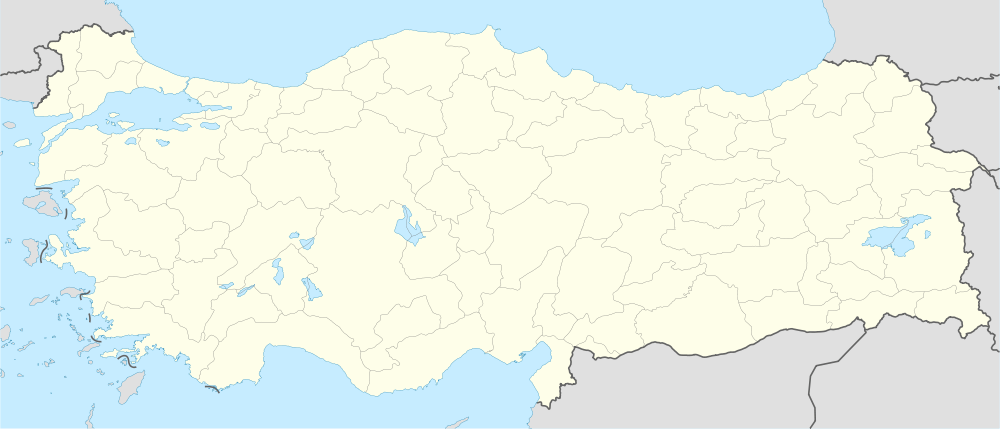Alinda
| Alinda | |
|---|---|
| Ἄλινδα | |
|
Agora of Alinda | |
 Shown within Turkey | |
| Location | Near Karpuzlu, Aydın Province, Turkey |
| Region | Caria |
| Coordinates | 37°33′30″N 27°49′25″E / 37.55833°N 27.82361°ECoordinates: 37°33′30″N 27°49′25″E / 37.55833°N 27.82361°E |
| Type | Settlement |
Alinda (Ἄλινδα) was an ancient inland city of Caria in Anatolia. It is situated on a hilltop which commands the modern-day town of Karpuzlu, Aydın Province, in western Turkey, and overlooks a fertile plain.
Alinda could have been an important city since the second millennium BC and has been associated with Ialanti that appears in Hittite sources (J. Garstang, p. 179).
It was this fortress which was held by the exiled Carian Queen Ada. She greeted Alexander the Great here in 334 BC.
The city could have been renamed "Alexandria by the Latmos" shortly afterwards, and was recorded as thus by Stephanus of Byzantium, although different sources raise different possibilities as to the exact location of the settlement of that name. The prior name of Alinda was restored by at least 81 BC. It appears as "Alinda" in Ptolemy's Geographia (Book V, ch. 2) of the 2nd century AD.
Alinda remained an important commercial city; minting its own coins from the third century BC to the 3rd century AD.[1] Stephanus records that the city had a temple of Apollo containing a statue of Aphrodite by Praxiteles.
Alinda has a necropolis of Carian tombs and has been partially excavated. Alinda also had a major water system including a Roman aqueduct, a nearly-intact market place, a 5,000-seat Roman amphitheater in relatively good condition, and remains of numerous temples and sarcophagi.[2]
Alinda appears on Byzantine lists of bishoprics, and it remains a titular see of the Roman Catholic Church; the seat is vacant after the death of the last bishop in 1976.
The non-restored but very well preserved ruins remain much visited, especially within the circuit of organized tours (locally called "safaris") with departure from either the international tourism center of Bodrum or from Milas and reaching Karpuzlu through a mountain road from the south.
References
- ↑ Cobb Institute of Archaeology. Museum object "Coin". Mississippi State University.
- ↑ Professor Fikret Yegül. Roman Building Technology and Architecture "Water supply systems: Cisterns, reservoirs, aqueducts". University of California.
External links
- The Princeton Encyclopedia of Classical Sites. Perseus Digital Library "Alinda". Princeton University.
Sources
- George E. Bean (1971). Turkey beyond the Maeander ISBN 0-87471-038-3. Frederick A. Praeger, London.
- J. Garstang, The Hittite Empire (University Press, Edinburgh, 1930), p. 179.